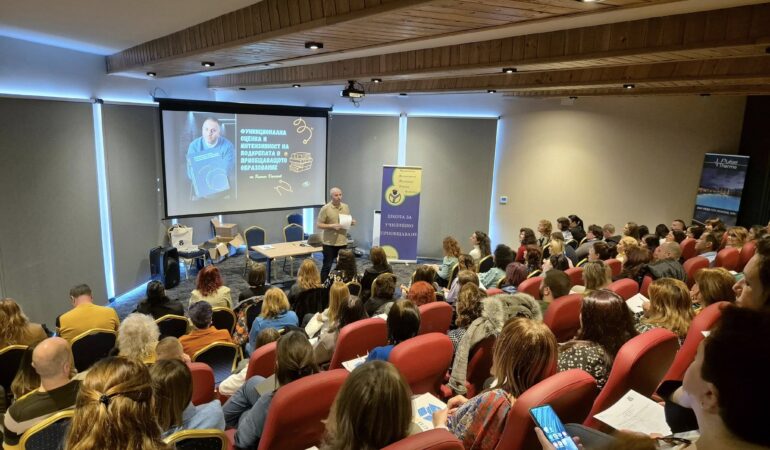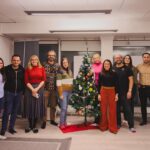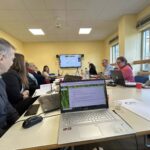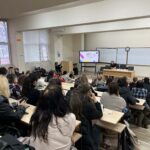From February 19th to 22nd, 2025, our annual winter school was held in the village of Banya. School principals, resource teachers, psychologists, speech therapists, and occupational therapists had the opportunity to exchange experience and information on the latest trends in inclusive education. This year’s program included a range of intriguing topics related to the field of education.
Colleagues from all over the country were able to receive valuable advice on improving their effectiveness when working with different groups of children in need of support. With the help of examples from real-life situations and various exercises, experts demonstrated the effectiveness of the provided methodologies in practice. All of them emphasized the crucial link between integrating social-emotional learning in pedagogical situations and the digitalization of educational processes.
The debate also focused on the strategy for conflict resolution through mediation. Our colleagues received important information on how to defuse tension and build bridges towards a tolerant and inclusive world.
Here is an overview of the topics presented at the educational panels:
• From ICD-10 to ICD-11 in Special Educational Needs – Dr. Kaloyan Damyanov (Director of RCPPO – Sofia City).
Presentation Content: A vision for the implementation of innovative methods in inclusive education and the need for more intensive support based on a biopsychosocial model and active participation in this process.
• Strategies for Dealing with Challenging Behavior in Children and Students with Autism Spectrum Disorder – Prof. Dr. Mira Tsvetkova-Arsova from Sofia University “St. Kliment Ohridski.”
Presentation Content: Psychological guidelines for better communication and integration of children with autism. Techniques for building trust and defusing conflict situations.
• Visually Impaired as a Specific Group with Visual Impairments – Assoc. Prof. Dr. Margarita Tomova from Sofia University “St. Kliment Ohridski.”
Presentation Content: An example of various methodologies for the inclusion of people with visual impairments and advice to society on increasing tolerance.
• The Role of the Auditory System and Processing for Sensory Integration – Olga Georgieva-Ruskovska, Speech Therapist.
Presentation Content: Presentation of the “Advanced Brain Technology” program and concepts for improving the environment for people with hearing impairments.
• Research on the Results of the Methodical Program in Inclusive Education – Dr. Liliya Kisyova from Sofia University “St. Kliment Ohridski.”
Presentation Content: Practices for building trust and productive communication between resource teachers and parents, which is a key factor in the successful inclusion of children.



